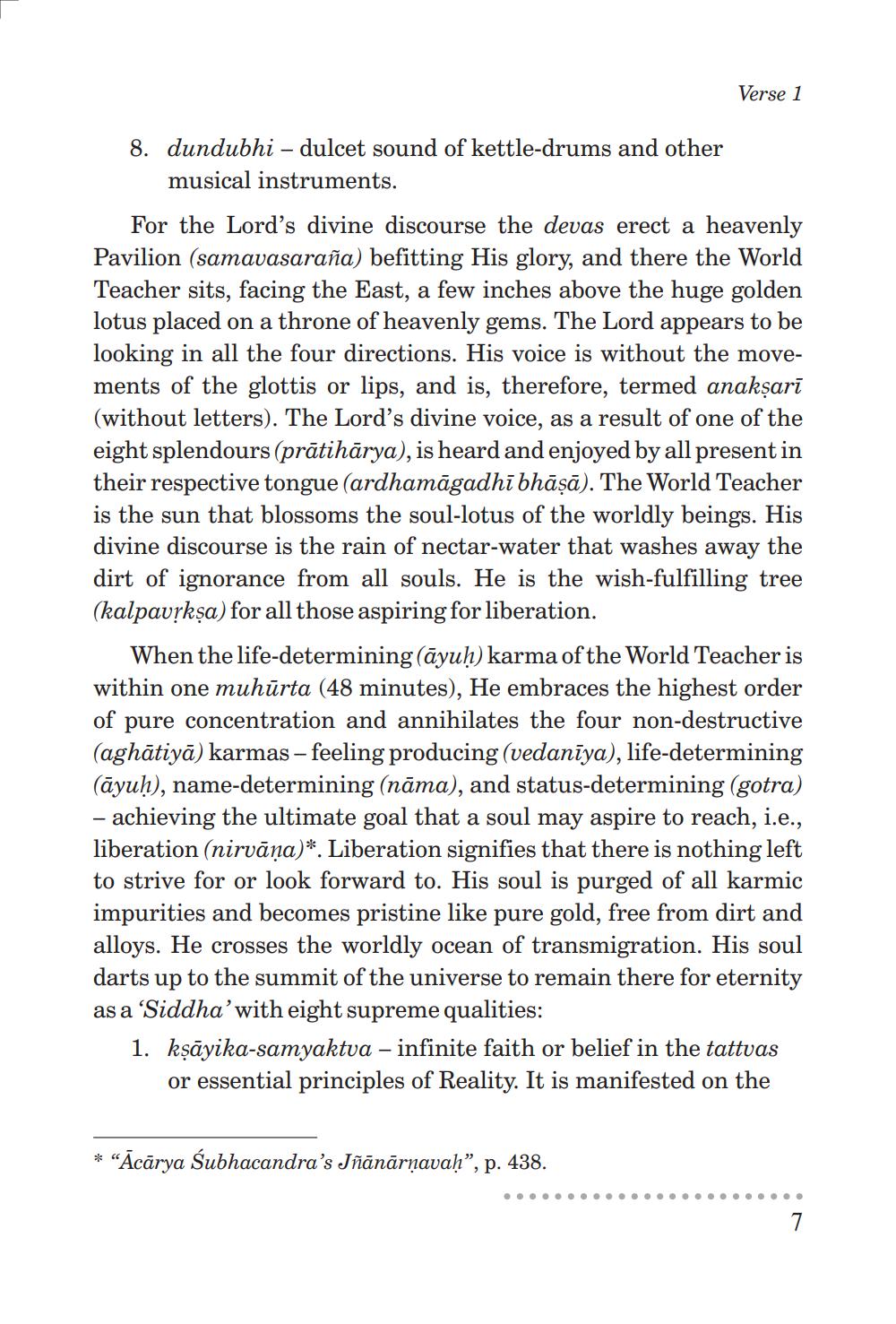________________
Verse 1
8. dundubhi – dulcet sound of kettle-drums and other
musical instruments. For the Lord's divine discourse the devas erect a heavenly Pavilion (samavasaraña) befitting His glory, and there the World Teacher sits, facing the East, a few inches above the huge golden lotus placed on a throne of heavenly gems. The Lord appears to be looking in all the four directions. His voice is without the movements of the glottis or lips, and is, therefore, termed anakşarī (without letters). The Lord's divine voice, as a result of one of the eight splendours (prātihārya), is heard and enjoyed by all present in their respective tongue (ardhamāgadhī bhāṣā). The World Teacher is the sun that blossoms the soul-lotus of the worldly beings. His divine discourse is the rain of nectar-water that washes away the dirt of ignorance from all souls. He is the wish-fulfilling tree (kalpavíkşa) for all those aspiring for liberation.
When the life-determining (āyuḥ) karma of the World Teacher is within one muhūrta (48 minutes), He embraces the highest order of pure concentration and annihilates the four non-destructive (aghātiyā) karmas – feeling producing (vedanīya), life-determining (āyuḥ), name-determining (nāma), and status-determining (gotra) - achieving the ultimate goal that a soul may aspire to reach, i.e., liberation (nirvāna)*. Liberation signifies that there is nothing left to strive for or look forward to. His soul is purged of all karmic impurities and becomes pristine like pure gold, free from dirt and alloys. He crosses the worldly ocean of transmigration. His soul darts up to the summit of the universe to remain there for eternity as a Siddha'with eight supreme qualities: 1. kṣāyika-samyaktva - infinite faith or belief in the tattvas
or essential principles of Reality. It is manifested on the
* “Ācārya Subhacandra's Jñānārņavaḥ”, p. 438.
........................




